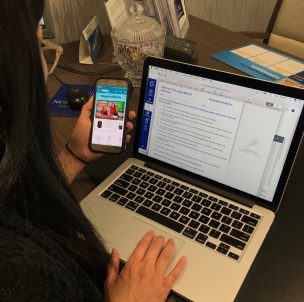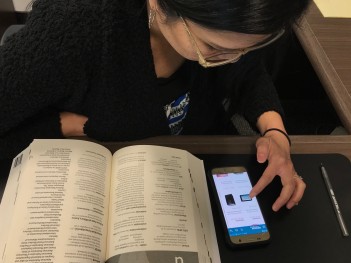Stimuli and instant gratification are now expected by many students due to online habits. In this age when most crave immediacy and interaction, it is oftentimes hard to be patient and take the slow road.
Study conducted by the Pew Research Center titled “Millennials will Benefit and Suffer due to Their Hyper-Connected Lives” stated millennials exhibited a thirst for instant gratification, quick fixes, a loss of patience and a lack of deep-thinking due to one of many reasons: fast-twitch wiring.
There are positives and negatives regarding this for the younger generation.
The study stated, “In 2020 the brains of multitasking teens and young adults are ‘wired’ differently from those over age 35 and overall it yields helpful results. They do not suffer notable cognitive shortcomings as they multitask and cycle quickly through personal and work-related tasks. Rather, they are learning more and they are adept at finding answers to deep questions, in part because they can search effectively and access collective intelligence via the internet. In sum, the changes in learning behavior and cognition among the young generally produce positive outcomes.”
College of Southern Nevada Professor of human behavior who teaches medical anthropology Dr. Diane Hardgrave said, “I think we have been conditioned to normalize having a lot of stimulus: visual stimulus.” Social media functions in real-time for immediate responses. A person can post something like ‘I’m having a great day’ and get an immediate response with people weighing in. “This is what you find now whether it’s Snapchat or Twitter. All of this is the cultural need to have as much information as we can get really fast and when we want it.”
A negative, constant distractions can cause many to reach breaking points where they lose their abilities to focus because of overstimulation.
Dr. Amy Foulks, anthropology part-time instructor at CSN, said, “It is not that our innate ability to concentrate is decreasing. It’s that we get so much more stimuli, all at once, and our poor brains are trying to process all of it and very few of us get training in concentration anymore.”
According to a July 2019 study by Pew Research Center, 81% of Americans go online daily with 28% online constantly, 45% online several times a day and 9% online once a day.
CSN student Gianna Mosley said, “Our obsession with media has affected our ability to focus on one thing because we get bored. We need something to entertain us all the time. I think having so much at fingertips with technology so advanced, we get bored so easily. People now-a-days need to be constantly entertained.”
Dejah Burchfield, CSN student, said, “We are now so used to be able to receive information in an instant, if anything takes longer, we are immediately thrown and loose our patience with whatever it is we are doing.”
Holden Hintz, student at CSN who acknowledges his lack of patience, said, “Now if it takes longer than 10 seconds to load a webpage on our phone, we are certain we don’t have good service and try to move somewhere else so our connection is better.”
“Media is the world’s greatest distraction,” Hintz said. It has certainly changed the way the younger generation operates.





